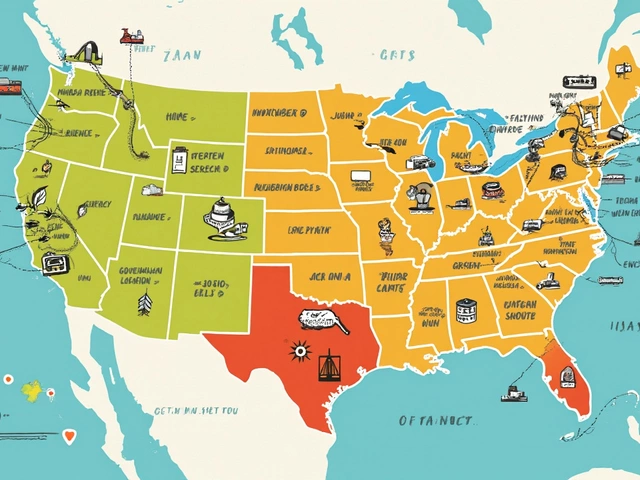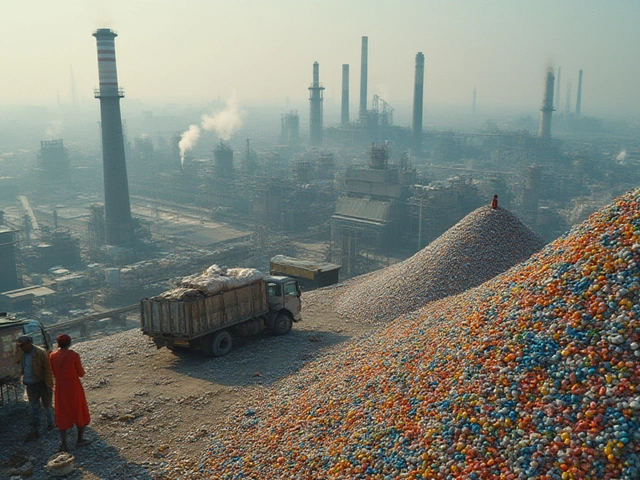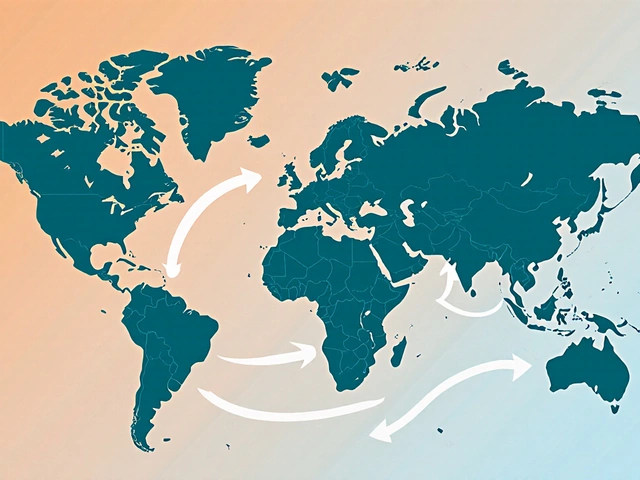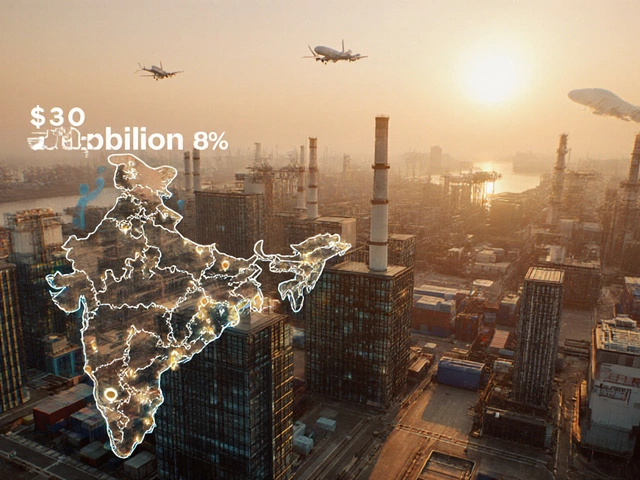Plastic has been a mainstay in modern life, bringing with it convenience and affordability. Yet, as its environmental repercussions become more pronounced, a growing number of nations are taking bold steps to create a plastic-free future. This movement isn't just about banishing shopping bags or single-use items; it involves a comprehensive shift in manufacturing processes, waste management, and consumer behavior.
Some countries have emerged as leaders in this global effort, introducing groundbreaking policies and innovative solutions to tackle plastic waste. From imposing stringent regulations to fostering a culture of sustainability, these trailblazers provide valuable lessons and inspiration. By exploring these initiatives, we can better understand the potential pathways to a cleaner, greener world.
- Pioneers in Plastic Reduction
- Innovative Waste Management Strategies
- Challenges and Criticisms
- Lessons for Global Application
Pioneers in Plastic Reduction
Across the globe, several countries have emerged as pioneers in the effort to reduce reliance on plastic. One standout example is Bhutan, a country that has aligned its policies with environmental preservation. Known for its Gross National Happiness philosophy, Bhutan banned plastic bags as early as 1999. Although enforcement has faced challenges, the intent remains strong and has paved the way for further sustainable initiatives. Bhutan continues to inspire a holistic approach to environmental care, blending cultural values with ecological preservation.
Another notable country is Rwanda, often hailed as one of Africa's most environmentally progressive nations. In 2008, the Rwandan government implemented a nationwide ban on non-biodegradable plastic bags. This bold move was part of their vision to become a zero-waste nation. The impact was swift and visible, as Rwanda's capital, Kigali, was named Africa's cleanest city. This achievement has inspired neighboring countries to follow suit, slowly creating a ripple effect throughout the region.
The European Union has also played a crucial role by adopting comprehensive strategies aimed at significantly limiting plastic waste. In 2019, the EU passed groundbreaking legislation to ban single-use plastics like straws, cutlery, and plates by 2021. The legislation set stringent recycling targets and emphasized a circular economic model, encouraging member states to innovate solutions. This move showcases how regional alliances can lead to impactful changes, with several EU countries taking further measures to combat excess plastic use.
Inspiration from Small Island Nations
Some small island nations are also making significant contributions to the plastic-free movement. For instance, Vanuatu has taken decisive action against marine pollution. As one of the first Pacific nations to ban single-use plastic bags, straws, and polystyrene food containers in 2018, Vanuatu addressed the growing threats to its marine biodiversity. This pioneering island nation highlights how determined policy action from smaller countries can have a profound impact.
“We have status as a global leader in the fight against plastic pollution, which is a status that we would like to maintain,” said the government spokesperson of Vanuatu in a press release.
Singapore, despite its urban density and high consumption rates, has prioritized eco-friendly practices, launching nationwide campaigns to reduce plastic usage. The Singapore government has actively encouraged businesses to embrace reusable alternatives and has implemented rigorous recycling programs. Public awareness and participation have surged due to these initiatives, showcasing the potential for densely populated areas to effectively handle waste concerns.
Challenges and the Way Forward
While these pioneers have sparked significant advancements, challenges remain. Enforcing plastic bans demands constant vigilance and adaptation to new consumer habits. Moreover, balancing economic considerations with environmental goals poses a constant challenge. Despite these difficulties, these countries showcase how a united effort, from policies to individual actions, can pave the way for a plastic-free future. Their successes serve as a guiding light for others aiming to combat plastic waste, encouraging innovation and community engagement in tackling one of the world's most pressing environmental issues.
Innovative Waste Management Strategies
The journey towards a plastic-free country is not just a dream; it is a tangible goal being pursued with innovative waste management strategies. These strategies often involve pioneering methods and technologies that aim to drastically reduce, if not completely eliminate, the use of plastic. As environmental awareness grows, many countries are implementing systems that turn waste into a resource rather than a disposal problem. For instance, in Sweden, a country that has gained attention for its revolutionary approach, they recycle and compost almost 50% of all household waste, and the rest is used to generate energy through incineration. It's an intricate cycle where waste becomes a source of electricity and heating. In Japan, the effective use of the circular economy model has led to an impressive recycling rate of around 84%, setting an example for sustained management of local waste.
One effective model is Taiwan's Pay-As-You-Throw (PAYT) system, an innovative approach that has spurred a dramatic shift in ecological practices. The premise is simple yet impactful: residents pay for waste disposal based on the amount they throw away. This has motivated citizens to separate recyclables more diligently, significantly reducing landfill waste. Implementing such economic incentives illustrates how policy can drive consumer behavior towards sustainable practices. On a technologically advanced front, countries like Singapore are developing new technologies that turn plastic waste into valuable resources. The nation leverages cutting-edge chemical recycling that breaks down complex plastic into its basic elements, transforming it into virgin-quality materials fit for resale.
Sustainable practices are further enhanced by community-driven recycling programs, where local groups champion zero-waste initiatives through education and participation. Germany is often referenced as a leader in this realm, with its comprehensive system of deposit schemes that incentivize returning bottles and cans for a small refund. This strategy results in a bottle return rate of nearly 98%, showing how effective community-incentivized systems can be when backed by legislation. Additionally, cities around the world are exploring 'smart waste' systems, where sensors inform garbage collectors when bins need emptying, optimizing waste collection routes and minimizing emissions from garbage trucks.
"Innovative recycling processes are crucial for shaping a waste-free society," declares Dr. Jane Goodall, emphasizing the power of collective action in conservation efforts.
Eco-friendly waste management not only involves technological advancements but also an intricate understanding of ecosystem balance, where the produced waste can positively interact with or benefit the environment. Permaculture waste systems, for instance, use natural processes to compost organic waste, turning food scraps and biodegradable materials into rich compost. Such practices are reshaping how societies perceive waste, transitioning from a linear system of consumption and disposal to a regenerative cycle that nurtures life. With these countries at the forefront, the pathway to an effectively managed waste ecosystem comes clearer, offering a template for others to follow.

Challenges and Criticisms
Attempting to create a plastic-free country is a formidable endeavor, laden with numerous obstacles and critiques. Despite the nobility behind such aspirations, the journey is fraught with complexities rooted in economic, social, and technological dimensions. One of the most significant challenges is the economic dependency many countries have on the plastics industry. Plastic manufacturing accounts for a substantial portion of jobs and economic activity, and any steps to curtail its use must be delicately balanced with considerations for those livelihoods. This economic tether makes policymakers tread carefully, as abrupt changes could lead to unintended social repercussions.
Aside from economic concerns, behavioral inertia amongst consumers presents an equally daunting barrier. Habits ingrained over decades cannot be changed overnight. The allure of eco-friendly alternatives often meets consumer resistance, mainly due to cost and availability issues. Despite governmental regulations, like bans and levies on plastic use, the public must embrace these changes for effective outcomes. Public education campaigns play a pivotal role, but there remains a gap between awareness and action. Professor Michael Braungart, a pioneer in the sustainability field, once remarked,
"The scale of the plastic issue requires a revolution in mindset alongside technological and policy shifts."
Criticism also arises from the effectiveness and enforcement of policies. Critics argue that while some countries claim success in reducing plastic usage, much of their waste is exported to developing nations, merely shifting the problem elsewhere. This strategy conflicts with the very ethos of global environmental responsibility and sustainability. Moreover, the initial costs of implementing creative waste management strategies—like recycling infrastructure or biodegradable alternatives—are often cited as prohibitive. These critics emphasize the need for robust international cooperation and equitable solutions, advocating for a holistic approach to waste management rather than isolated national efforts.
Technologically, the transition from plastic to sustainable materials faces significant hurdles. Innovations in biodegradable products or alternative materials are still evolving, both in terms of capability and scalability. It raises questions about life-cycle assessments and environmental footprints of alternatives. Extensive research and development, backed by investment and incentives, are required to make zero-plastic goals viable. Time and again, countries pushing for reduced plastic usage have found themselves constrained by technological limitations and the slow pacing of innovation adoption.
Lessons for Global Application
The bold and innovative steps taken by countries leading the movement towards a plastic-free country offer a wealth of lessons for other nations eager to embark on a similar path. One of the most compelling observations is the importance of comprehensive policy frameworks that address the entire lifecycle of plastic products, from production to disposal. Countries like Rwanda and Denmark have shown that legislation focusing not just on the end user but on manufacturers and suppliers can create seismic shifts in the amount of plastic ending up in landfills and oceans.
Rwanda, for instance, has successfully implemented one of the world's strictest plastic bag bans since 2008, showcasing how government resolve coupled with community engagement can lead to tangible results. This policy has been instrumental in positioning Rwanda as a model for eco-friendly practices within the African continent. Meanwhile, Denmark has excelled in implementing a high taxation strategy on plastic bags, which has led to a dramatic decrease in their usage. This economic disincentive serves as a reminder of how fiscal measures can effectively complement regulatory approaches.
"It's not just about banning plastic outright; it's about instilling a mindset of responsibility both at the individual and corporate levels," remarked Erik Solheim, former Executive Director of the United Nations Environment Programme.
Another crucial takeaway is the need for robust infrastructure for waste management and recycling. Japan, with its meticulous approach to sorting and recycling waste, provides an excellent example for other nations. The country's advanced waste segregation practices and emphasis on community participation ensure that plastic waste is minimized and reused effectively. This culture of responsibility at the community level is integral in fostering a shift towards a sustainable future.
Successful implementation of plastic reduction strategies also demands an investment in technology and innovation. Countries looking to follow suit can benefit from exploring breakthroughs in biodegradable materials or innovative packaging solutions. For example, eco-friendly products made from plant-based materials or recycled ocean plastics can serve as viable alternatives to conventional plastics.
| Country | Policy | Outcome |
|---|---|---|
| Rwanda | Plastic Bag Ban | Cleaner Cities |
| Denmark | Plastic Bag Tax | Reduced Usage |
| Japan | Advanced Recycling | Efficient Waste Management |
Lastly, international cooperation and knowledge sharing are vital. Governments, businesses, and environmental groups must work together to share insights and strategies. The global nature of plastic pollution requires solutions that transcend borders, making international collaboration an essential component of this fight.











Write a comment